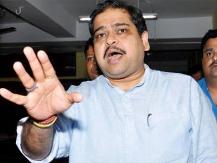coastaldigest.com web desk
June 9,2020
Bijnor: A 17-year-old Dalit youth was shot dead by four miscreants belonging to the upper caste of Hinduism after the former tried to enter a temple in Uttar Pradesh.
The deceased was identified as Vikas Jatav. The accused had tried to stop the deceased from entering into a temple.
On being stopped from entering the temple located in Domkhera village, Jatav raised and objection and started arguing with the accused.
The accused were identified as - Lala Chauhan, Horam Chauhan, Bhushan and Jasveer. The incident took place on May 31, according to the father of the deceased.
How it happened
On May 31, Jatav went to a temple in Domkhera to offer his prayers. The four accused, however, did not let him go inside. Following this, an argument broke out between the accused and the 17-year-old boy.
On the same day, the victim approached the police and lodged a complaint in relation to the incident. The police, however, did not take any action against the accused men.
Late night on Saturday, Jatav was sleeping inside his house when the four men barged in and opened fire at him.
Hearing the gunshots, Jatav's family rushed to rescue him, following which, the accused escaped. Vikas was profusely bleeding after being shot and succumbed to the injuries before he could reach the hospital.
Lala Chauhan and Horam were nabbed by the police while the other two are still at large. The four accused have been booked under section 302 (murder) of the Indian Penal Code (IPC) and the SC/ST Act.






Comments
Add new comment